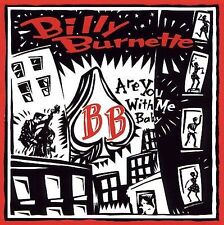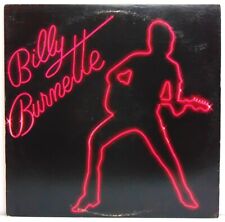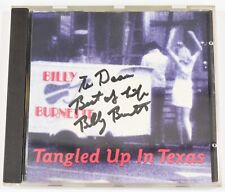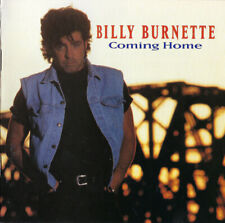|
People Magazine (05/07/1979), Bob Welch is Humming Again After the Costliest Miscalculation in Rock: He Quit Fleetwood Mac People Magazine, May 7, 1979 Bob Welch is Humming Again After the Costliest Miscalculation in Rock: He Quit Fleetwood Mac
by Jim Jerome Before Bob Welch, the world's record for the hardest-luck story in rock belonged to Pete Best. He was the unfortunate English drummer who back in 1962 was replaced by Ringo Starr when the Beatles were still playing in Liverpool. But not even Best, who had no choice (he was fired), was so devastatingly mocked by fate as Welch. In the early 1970s the California-born Welch played guitar, sang and wrote half the songs for the struggling Fleetwood Mac. The five LPs Welch recorded with them sold barely a million copies all told, and the group was mired in clamorous legal and marital squabbles (including the dissolution of Welch's own second marriage). Bob finally quit, "pissed and disgusted and at the end of my rope emotionally. I had not juice or chutzpah left. "The rest," as Welch sardonically cracks, "is proctology." Reconstituted with Stevie Nicks and Lindsey Buckingham, Fleetwood Mac sold an incredible 20 million copies worldwide of its next two albums. "Their success was grotesque," Bob groans. "For a year and a half I asked myself, 'What kind of schmuck am I?' Had I been holding back this miracle all those years? I felt like a demon." Meanwhile he was down to his last eight thousand dollars, while his own hard rock group, Paris, floundered with two albums Welch now admits were "ill-conceived." Then his luck turned too, thanks in part to his old buddies from big Mac. They had remained "best friends" throughout the split and he's since even toured with them as an opening act. In 1977, with Mick Fleetwood, Christine McVie and Buckingham all sitting in on one cut, Welch's smoothly crafted debut solo LP, French Kiss, redeemed him with sales of a million and a half. Now his follow-up album, Three Hearts, is also platinum and Fleetwood himself is acting as Bob's manager. The experience left Welch, 32, with "an immediate, unshakable belief in fate - that I do not control what I do in life. It's some overall pattern that's impelling us. My own timing mechanism," he now feels, "was off by seven years." He still takes nothing for granted, especially predicting hit records. "That's impossible. Hit singles tap what Jung called the collective unconscious. No one can predict what'll be accepted - not producers, artists or executives. And not icons, incantations or voodoo." Welch developed his powers of articulation in Beverly Hills, where his father, Robert Welch, produced films like Bob Hope's The Paleface. Young Bob learned guitar at 8, was accepted by Georgetown University but instead hopped a freighter to France "ostensibly to study at the Sorbonne, but I mostly smoked hash with bearded guys five years older. Sitting in the Deux Magots café turned out to be as revolutionary as a Honda Civic." Back at UCLA, Welch majored in French but minored in bluesy rock with a group called the Seven Souls and hit the road short of graduation. He toured with acts like James Brown and Ike and Tina Turner before forming his own trio, Head West, in Paris. In 1971, after "living on rice and beans and sleeping on the floor" for two years, bob gave up to share a house near London and to play with Christine and John McVie, Fleetwood and guitarist Danny Kirwan (who left the group a year later). His present two-bedroom bachelor pad above Sunset Boulevard is modest by rock star standards. He dines out every day, sputters around L.A. in a '56 Porsche or spiffier BMW and smokes lots of cigars. There is "no one lady, don't have that much time for sex," Bob confides. "A treat is dinner out with a date. Mostly, I barely have the energy for a vodka gimlet back home late at night and Tom Snyder. I have not interest in dating Britt Ekland, but I am open for suggestions." Welch's bookish, brooding pursuits continue to buffer him against the L.A. rock scene. Indeed, can a man who reads Alan Watts, Jung, Koestler and Malraux find happiness on roller skates in Venice, Calif.? "I'd love to sell 40 million LPs, but look at Fleetwood now," says Bob. "He'll never be anonymous again. Can he play the Holiday Inn lounges in 15 years?" The star syndrome holds little fascination for him: "There's no veneration, like for Blake, Dante, Boethe, Faulkner. In 200 years this whole pop music thing may be just a footnote. On the other hand," Welch muses with one of his well-chosen leaps into the absurd, "Freddy Mercury [of Queen] may turn out to be the Brahms of our day." ********
Picture of Bob and Mick sitting at a piano. Caption: He missed 20 million in sales, but Welch still shares piano chops and reborn career with manager-buddy Mick Fleetwood. Picture of Bob, Mick, Chris and John sharing a laugh. Caption: Bob remains close to laughing ex-Mac colleagues Fleetwood and Christine and John McVie, shown in 1974. Welch is one of the wriest conversationalists in L.A. this side of Jack Nicholson. Picture of Bob stretched out and leaning back on his motorcycle. Caption: Though basking in the rays of the solo fame, ego doesn't blind him: "I believe everybody's as big an ass as I am." Thanks to Les for posting this to the Ledge and to Anusha for formatting and sending it to us.
|





![Billy Burnette - Billy Burnette [New CD] Rmst, Reissue picture](/vintage/img/g/7RoAAOSwUihkty9H/s-l225/Billy-Burnette-Billy-Burnette-New-CD-Rmst-Reissue.jpg)



